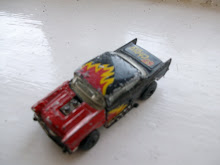Like, I suspect, a lot of people, one of my big problems with modern day soul/R'n'B is the unyielding subscription to the foghorn style of singing that emerged at the end of the 1980s. The recently seven-thrower Whitney Houston started this trend before it was powered up by the likes of Mariah Carey. R Kelly would appear to cover it on the male end of things.
Old Git that I am, it all seems a long way from the days of Motown and Stax – Beyonce Knowles may well be highly regarded today, but I doubt she’d have made back-up for Martha Reeves and the Vandellas. To whit, listen to Otis Redding’s Live In Europe album to see a singer with an instantly recognisable voice giving it some major effort on the stage. There's a hardness to his voice that has been eradicated from a lot of pop music in the last 30 years.
Recorded in Paris in 1967 and released months before his tragic death, Live in Europe remains my favourite live album. How could it not be? This is Otis Redding. Backed by Booker T and the MGs. And the Memphis Horns. The perfomance was part of the Stax Revue that toured the continent and Britain, also featuring Sam and Dave among others – enough for me to have long stated that if I was Doctor Who for a day, that seeing the show would be top of my list of things from history to check out.
What makes this such an red-hot album is Otis’ showman skills – you can sense the crowd are in his grip. At the end of I Can't Turn You Loose, he screams “I know you think I’m gonna stop now – I ain’t gonna stop – HIT IT!” It’s wonderfully thrilling. Elsewhere, he manages to out-raunch Jagger on a frantic run-through of Satisfaction and take the Beatles’ Day Tripper in a totally different dimension.
The set ends, inevitabely, with Try a Little Tenderness, perhaps his anthem. In it's last seconds, his pleading reaches new heights and it's no surprise that the crowd beg him back for just a few more seconds.
What made Otis such a giant was not just his voice. With (Sitting On) The Dock of the Bay, it’s clear that he was looking to grow as an artist and take his music into new directions, fired up by how the Beatles had outgrown their early sound. Live in Europe, in a way, acts as an end of a chapter, leaving us to wonder what dimensons he (along with Stevie, Marvin and Curtis) would have taken Soul in the 1970s.
Thursday, 1 March 2012
Subscribe to:
Post Comments (Atom)

No comments:
Post a Comment